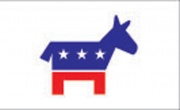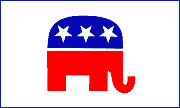Politics
From The Peopling of NYC
Politics in the US
Until the 1920s, Jews did not fall into any particular voting category. Personal issues, class, ideology, interests, and ethnic loyalty divided Jews among Democrats, Republicans, Socialists, and Progressives.
The influence of Socialism as well as political concepts in the Hebrew Scriptures, especially the Prophets who emphasized social justice and messianism, have all influenced the orientation of Jews in American politics. For example, the American Socialist Party grew from 16,000 in 1903 to 118,000 in 1912, largely because of Jewish support.
Because of the deteriorating conditions of the Jewish communities in Eastern Europe, the American Jewish Committee (AJC) was formed in 1906 by an elite group of German Jews. Its goals were to aid fellow Jews abroad by pressing for diplomatic intercession and resisting legislation designed to restrict immigration. Later the American Jewish Congress was established to address the interests and minority rights of Jews in post-War Europe.
The first concerted nationwide action by American Jewry took place in 1840 to protest the torture of nearly one hundred Jews of Damascus who had been accused of murdering Christian children in order to use their blood in Jewish rituals.
In the late nineteenth century the attention of American Jewry was turned increasingly toward the mistreatment of fellow Jews in czarist Russia. Economic pressure, such as the threat to abrogate the treaty of 1832 that governed all commercial relations between the U.S. and Russia and gave Russia access to the U.S. market, became the preferred strategy. President Taft entered office in 1909 having spoken forcefully on the treaty issue during his campaign. But delegations to the White House were unable to elicit an acknowledgement that American Jews in Russia were entitled to legal protection.
The AJC helped Jews in the war zone. Indiscriminate rape and murder of Jews accompanied the movement czarist armies and some 300,000 Jews were expelled from their homes as potential spies and traitors. Several relief agencies, including the American Jewish Relief Committee, mainly the product of the AJC, were formed to aid the devastated communities.
In November 1914 the different relief committees combined to form the Joint Distribution Committee of American Funds for the Relief of Jewish War Sufferers aka “The Joint.”
By 1918, The Joint had collected and distributed $20 million for more than 700,000 Jews in the East dependent on its largess.
Louis Brandeis, Stephen Wise, and Felix Frankfurter were all instrumental in influencing President Woodrow Wilson in backing Britain to create a Jewish homeland. The Balfour Declaration was announced on 2 November 1917. Surprisingly, the AJC was anit-Zionist. On June 1917, 30 Jewish organizations, 80 cities, 335,000 votes were cast to select delegates in the American Jewish Congress. The delegation symbolized unity. But there was still arguments between the Zionists and anti-Zionists.
Politics in New York
In New York, the Tammany machine interceded with officials to provide jobs, to drop charges and fines, and to help real estate men and contractors gain favors. It also dispensed free coal and food to the needy and helped with medical care, social services, and burial arrangements. However, the Irish had no intention of sharing these advantages and risking loss of control to newcomers, least of all the Jews from Russia and Poland.
By 1900, Tammany appeared to be paying more attention to Jewish interests, especially the crucial question of immigration restriction, on which they took a liberal position. On March 5, 1919, an anti-Zionist memorial appeared in the New York Times. The memorial warned against the “reorganization of the Jews as a national unit to whom territorial sovereignty in Palestine shall be committed.” The memorial was signed by Adolph Ochs, the publisher of the Times, and by dozens of other members of the anti-Zionist faction of the AJC.
Politics in the Lower East Side
Sixty leading American Jews met in NYC in February 1906 and organized a new defense organization called the American Jewish Committee.
At a rally in Carnegie Hall in 1916, Julius Rosenwald of Chicago made the first of his great pledges, $1 million to the AJC.
Socialism never captured the entire Jewish community, but with its explicit appeals to moralism and justice, it was an important force on the Lower East Side.

